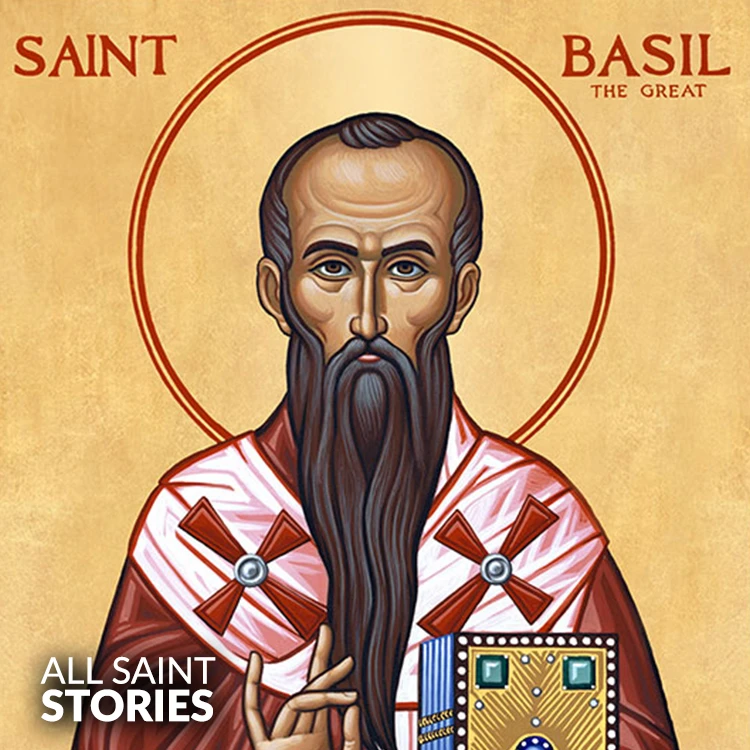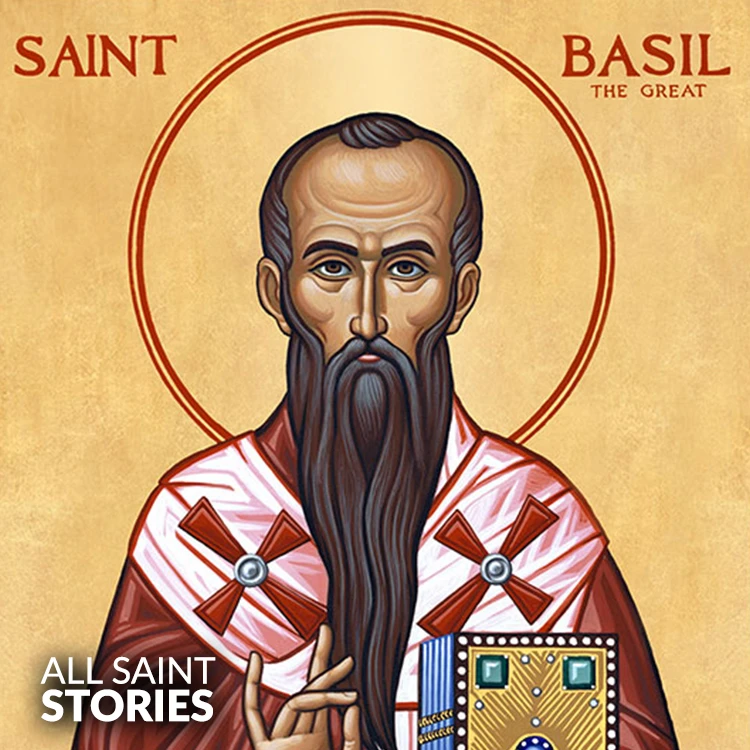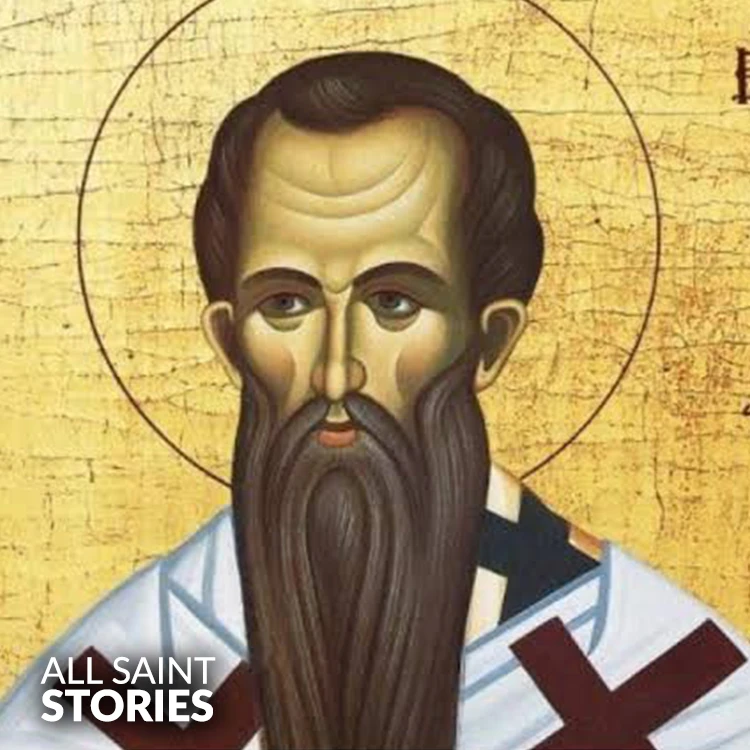"O Saint Basil, great and holy father, you who dedicated your life to God’s service, intercede for us before His throne. Grant us wisdom, humility, and strength to follow in your footsteps, living with love and compassion for all. Help us grow in faith and in virtue, so we may be transformed by God’s grace. Through Christ our Lord. Amen."
ST. BASIL
ST. BASIL

St. Basil the Great was a leading figure in the early Christian Church, recognized for his vast theological knowledge, eloquence, and efforts in defending Nicene orthodoxy against Arianism. Born in 330 in Caesarea of Cappadocia, he was deeply influenced by his devout Christian family, many of whom are also venerated as saints. St. Basil pursued education in Constantinople and Athens, where he met St. Gregory Nazianzen. After practicing law, he chose a monastic life and later established several monasteries. His monastic rule became the foundation of Eastern monasticism. As Bishop of Caesarea, he advocated for the poor, fought against simony, and excommunicated those engaged in corruption. His teachings and writings solidified his legacy as a Doctor of the Church.
St Basil belonged to a family of saints, including his parents, St Basil the Elder and St Emelia, and his siblings Sts Gregory of Nyssa, Peter of Sebaste, and St Macrina the Younger. Even his grandparents on his father’s side were revered for their holiness.
From a young age, Basil showed exceptional intellect and a serious demeanor. He studied at leading institutions in Caesarea, Constantinople, and Athens, where he focused on rhetoric, philosophy, astronomy, geometry, and medicine. However, his sister St Macrina guided him toward a spiritual path, encouraging him to embrace the Gospel. Basil later remarked that achieving perfection meant giving to the poor, letting go of worldly worries, and avoiding distractions from earthly attachments.
His travels through Syria, Palestine, Mesopotamia, and Egypt brought him into contact with monastic communities, after which he lived as a hermit for five years. Attracting followers, he eventually established a monastic community on his family estate in Pontus. He created the Rule of St Basil, which emphasized work, study, and prayer, cementing his role as the "Father of Eastern Monasticism."
In 364, Basil was ordained a priest under Archbishop Eusebius of Caesarea. Known for his holiness, administrative skills, and scholarship, Basil succeeded Eusebius in 370. As Archbishop, Basil led over half of Asia Minor and defended the faith against Emperor Valens' Arianizing policies, ensuring the region’s adherence to orthodox Christianity.
Basil’s diocese was known for its strict observance of discipline. He created models of charitable care, including poorhouses and a large complex in Caesarea called "Basilios." This facility provided medical attention to the poor, lepers, and homeless, and offered vocational training. Basil lived modestly, dedicating his wealth to famine relief.
Recognized as one of the Church's most significant figures, Basil is one of the three great ecumenical doctors, alongside St Gregory Nazianzen and St John Chrysostom. His theological contributions, particularly on the Holy Spirit, are still studied. He also authored the Eucharistic liturgy that bears his name. Basil passed away on January 1, 379, at the age of 50, leaving a legacy cherished by Christians, Jews, and pagans alike.
Video Not Found
The information on this website is compiled from various trusted sources. While we aim for accuracy, some details may be incomplete or contain discrepancies.
If you notice any errors or have additional information about this saint, please use the form on the left to share your suggestions. Your input helps us improve and maintain reliable content for everyone.
All submissions are reviewed carefully, and your personal details will remain confidential. Thank you for contributing to the accuracy and value of this resource.
Credits & Acknowledgments
- Anudina Visudhar (Malayalam) – Life of Saints for Everyday
by Msgr. Thomas Moothedan, M.A., D.D. - Saint Companions for Each Day
by A. J. M. Mausolfe & J. K. Mausolfe - US Catholic (Faith in Real Life) – Informational articles
- Wikipedia – General reference content and images
- Anastpaul.com – Saint images and reflections
- Pravachaka Sabdam (Malayalam) – Saint-related content and insights
We sincerely thank these authors and platforms for their valuable contributions. If we have unintentionally missed any attribution, please notify us, and we will make the correction promptly.
If you have any suggestion about ST. BASIL
Your suggestion will help improve the information about this saint. Your details will not be disclosed anywhere.
© 2026 Copyright @ www.allsaintstories.com




 English
English
 Italian
Italian
 French
French
 Spanish
Spanish
 Malayalam
Malayalam
 Russian
Russian
 Korean
Korean
 Sinhala
Sinhala
 Japanese
Japanese
 Arabic
Arabic
 Portuguese
Portuguese
 Bantu
Bantu
 Greek
Greek
 German
German
 Dutch
Dutch
 Filipino
Filipino